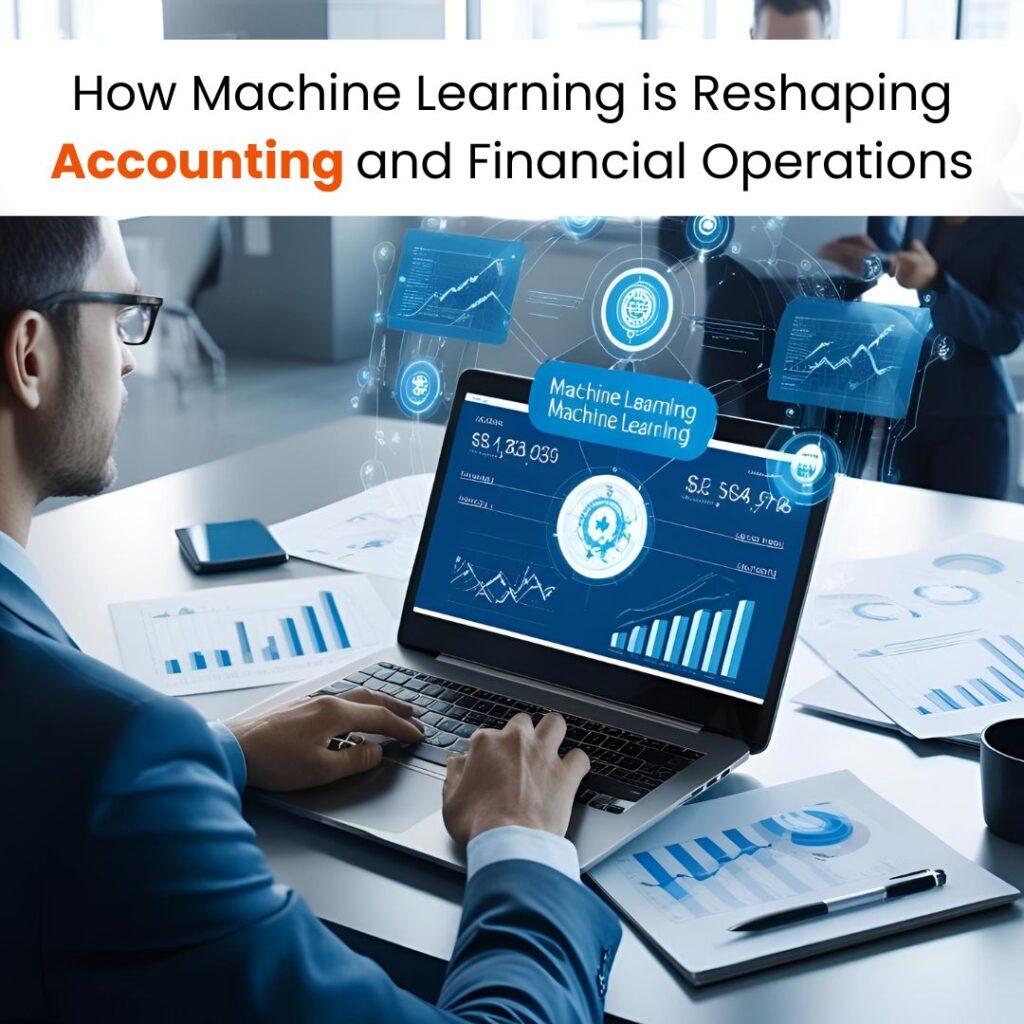Overview:
AI is changing many industries through automation across the globe. And the way these industries operate changes as well. All these operations are changing through machine learning, a branch of artificial intelligence. The ability of systems to automatically learn from experience and get better without explicit programming is called machine learning. Machines behave like human intelligence. There is a vast use of it, particularly for fraud detection and decision making.
The basics of machine learning, its present uses in finance, and its potential all are explained in this article. Additionally, it can be applied to professionals such as members of ACCA in Zimbabwe or the Maldives.
What is Machine learning
What actually machine learning is? it is a field of artificial intelligence that will allow systems to make judgements without being explicitly programmed. It is a technique for teaching computers to analyze data, spot trends, and make judgments with little assistance from humans.
Machine Learning Types
Machine learning types help understand how important it is for applications in finance and accounting automation tasks.
Supervised Learning
Labeled datasets are used to train machine learning algorithms in supervised learning. In order to forecast results, the model learns from input-output pairs. This approach is frequently used in financial predictive analytics, such as predicting consumer or market trends.
Unsupervised Learning
This type of machine learning works with unlabeled data. The algorithm identifies hidden pattern grouping with a dataset. This technique is ideal for data analysis in accounting, where it helps in segmenting clients based on behavior or detecting anomalies in financial reports.
Reinforcement Learning
This approach involves algorithms learning by interacting with their environment to maximize a reward signal. Its particularly relevant in algorithmic trading and financial analytics, where systems learn optimal trading strategies over time.
Machine Learning in Finance Current Perspectives
It is no longer theoretical in finance, it’s operational. It has ushered in a new era of AI-driven accounting and financial operations, offering benefits that include.
1. Reducing Errors
Manual accounting processes are prone to human error. AI in accounting helps automate data entry, reconciliation, and reporting, significantly lowering the margin of error.
2. Compliance
With increasing regulatory demands, compliance management has become complex. ML tools assist by automatically monitoring transactions for compliance, flagging potential issues in real time, and adapting to changing regulations.
3. Risk Management and Fraud Detection
Machine learning models can spot odd transaction patterns and possible fraud by instantly examining large datasets. This strengthens security and fraud prevention efforts across banking and accounting platforms.
4. Algorithmic Trading
ML is at the heart of algorithmic trading systems that analyze market conditions and execute trades at optimal times. These algorithms make decisions more quickly than a human can by learning from past market data.
5. Investment Management
AI algorithms assist in portfolio optimization by assessing risk tolerance and market conditions to recommend personalized investment strategies. This is vital in financial services technology, where client needs vary significantly.
6. Quantitative Analysis and Forecasting
From predictive analytics in finance to budget forecasting, AI enhances the accuracy of models by continually learning from new data and outcomes. This leads to better decision-making and long-term planning.
Future Scope of Machine Learning in Finance
As ML continues to evolve, its potential applications in finance and accounting are expanding in exciting directions:
1. Hyper-Personalization
ML enables hyper-personalization of financial services by analyzing user behavior to offer tailored product recommendations, budgeting tools, and investment advice—boosting customer engagement and satisfaction.
2. Enhanced Security and Fraud Prevention
The integration of ML with biometric and behavioral data is expected to elevate fraud detection and cyber-security to unprecedented levels, a key concern in modern AI and financial services.
3. Increased Automation and Efficiency
From robotic process automation (RPA) to smart invoicing, the future of accounting automation involves end-to-end workflows managed with minimal human intervention—saving time, reducing costs, and boosting productivity.

today!
How to Learn Machine Learning
Professionals in accounting and finance and global ACCA candidates, can improve their learning by acquiring skills regarding machine learning.
Programming Skills
Familiarity with Python is important for hands-on experience with Machine Learning Algorithms.
Projects and Certifications
Working on real-life projects and getting certification in financial analytics or AI help you validate your skills.
Online Courses
Platforms like coursera, edx, and udemy offer courses on machine learning basics and advanced. These courses cover benefits of machine learning and its application in finance.
Mathematical Foundation
A solid understanding of statistics, linear algebra, and calculus forms the backbone of machine learning effectively.
Conclusion
The combination of machine learning with accounting and financial operations is not just reshaping the industry, it is causing a revolution in it as well. From error reduction, compliance, forecasting, and improving investment strategies. It offers unmatched capabilities that are driving a smarter, more secure, and efficient financial future. As AI in accounting is becoming mainstream, professionals who adapt to change will position themselves differently from the rest of others.
Applying and learning machine learning is now important for investors, accountants, and students, regardless of their professions.
Frequently Asked Questions
Does machine learning give benefits to ACCA members?
Yes, ACCA members can get benefits from it and it is a powerful combination. Learning ML equips them with modern tools for data analysis enhancing their value in a technology driven environment.
What future does AI hold in financial services?
The future of AI involves hyper-personalized services, predictive analytics in finance, enhanced cybersecurity, and fully automated operations. Embracing AI and ML is crucial for those aiming to stay competitive in financial services technology.
What role does machine learning play in accounting?
It helps in efficient accounting automation by analyzing vast datasets, it will reduce errors by predicting financial outcomes. It empowers accountants to focus on strategic analysis rather than performing repetitive tasks.
How beneficial is machine learning in finance?
Key benefits of it include real-time fraud detection, improved compliance, better investment insights, automation of routine tasks, and advanced financial analytics.





